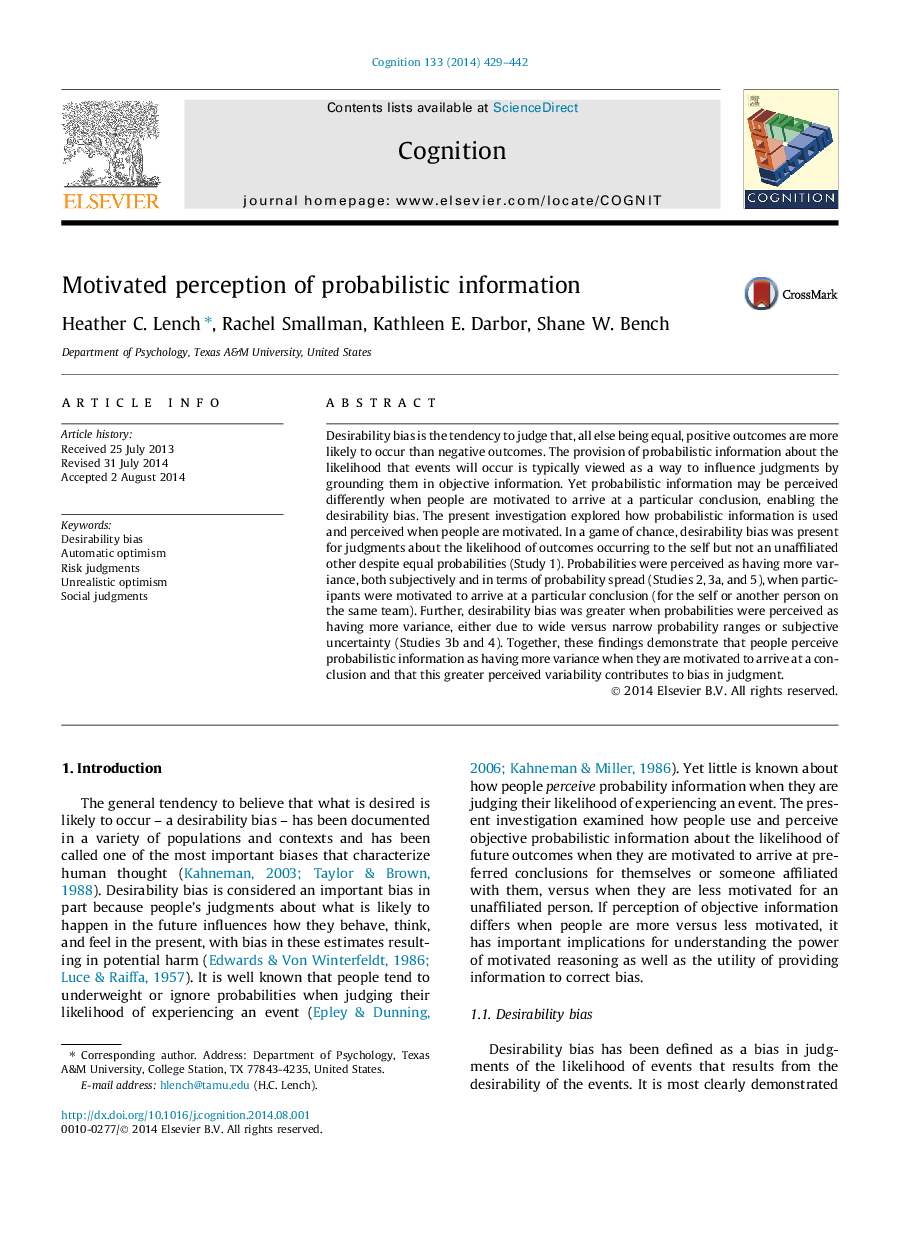| کد مقاله | کد نشریه | سال انتشار | مقاله انگلیسی | نسخه تمام متن |
|---|---|---|---|---|
| 10457510 | 921837 | 2014 | 14 صفحه PDF | دانلود رایگان |
عنوان انگلیسی مقاله ISI
Motivated perception of probabilistic information
ترجمه فارسی عنوان
درک مؤثری از اطلاعات احتمالی
دانلود مقاله + سفارش ترجمه
دانلود مقاله ISI انگلیسی
رایگان برای ایرانیان
کلمات کلیدی
تعصب مطلوب، خوش بینی اتوماتیک، قضاوت های خطر خوش بینی غیر واقعی، قضاوت های اجتماعی،
موضوعات مرتبط
علوم زیستی و بیوفناوری
علم عصب شناسی
علوم اعصاب شناختی
چکیده انگلیسی
Desirability bias is the tendency to judge that, all else being equal, positive outcomes are more likely to occur than negative outcomes. The provision of probabilistic information about the likelihood that events will occur is typically viewed as a way to influence judgments by grounding them in objective information. Yet probabilistic information may be perceived differently when people are motivated to arrive at a particular conclusion, enabling the desirability bias. The present investigation explored how probabilistic information is used and perceived when people are motivated. In a game of chance, desirability bias was present for judgments about the likelihood of outcomes occurring to the self but not an unaffiliated other despite equal probabilities (Study 1). Probabilities were perceived as having more variance, both subjectively and in terms of probability spread (Studies 2, 3a, and 5), when participants were motivated to arrive at a particular conclusion (for the self or another person on the same team). Further, desirability bias was greater when probabilities were perceived as having more variance, either due to wide versus narrow probability ranges or subjective uncertainty (Studies 3b and 4). Together, these findings demonstrate that people perceive probabilistic information as having more variance when they are motivated to arrive at a conclusion and that this greater perceived variability contributes to bias in judgment.
ناشر
Database: Elsevier - ScienceDirect (ساینس دایرکت)
Journal: Cognition - Volume 133, Issue 2, November 2014, Pages 429-442
Journal: Cognition - Volume 133, Issue 2, November 2014, Pages 429-442
نویسندگان
Heather C. Lench, Rachel Smallman, Kathleen E. Darbor, Shane W. Bench,
